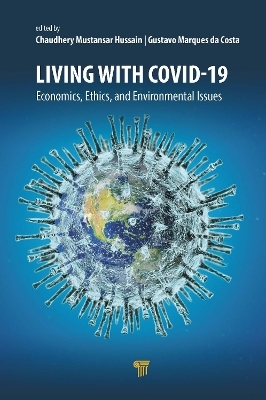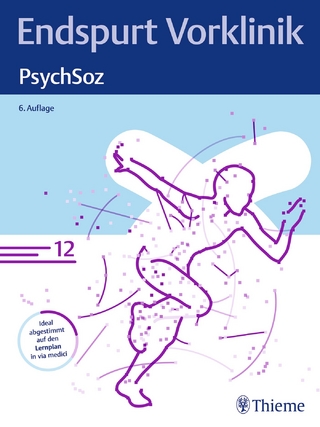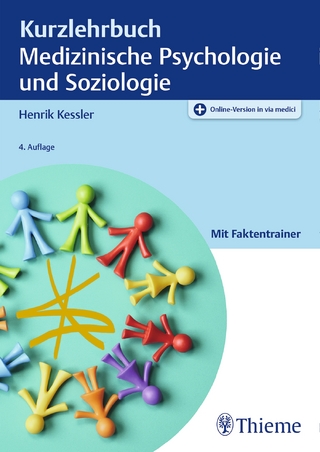
Living with Covid-19
Jenny Stanford Publishing (Verlag)
978-981-4877-78-7 (ISBN)
At the end of 2019, the world came across a virus, SARS-CoV-2, which causes a disease classified as COVID-19. The virus is highly transmissible and causes an acute respiratory syndrome that ranges from mild symptoms in about 80% cases to very severe symptoms with respiratory failure in 5% to 10% of cases. The epicenter of the outbreak of this pandemic was Wuhan, a city in China’s Hubei Province. The World Health Organization has declared the outbreak of COVID-19 to be a pandemic and classified it as a high global risk. Human health risk assessment for COVID-19 depends on the characteristics of the virus and includes the process of gathering and analyzing environmental and health information using specific techniques to support decision making, systematically taking actions, and articulating the collected information within and between sectors for promoting health and improving the social and living conditions of populations. To assess COVID-19 risk factors, it is important to consider and document all relevant information available at the time of assessment. In this way, decision making will get a direction and the assessment process will get recorded, which includes evaluation of the risk factors, control measures, methods used for evaluation, why they were considered important, and their order of priority. This book addresses in detail the challenges posed by the virus and presents up-to-date knowledge on safety risk assessment and economics, as well as ethical, legal, and social implications (ELSI) of COVID-19.
Chaudhery Mustansar Hussain is an adjunct professor and director of laboratories at the Department of Chemistry and Environmental Sciences, New Jersey Institute of Technology, USA. His research is focused on the applications of nanotechnology and advanced materials in environmental protection, analytical chemistry, and various industrial sectors. Dr. Hussain has authored numerous papers published in peer-reviewed journals and edited several scientific monographs and handbooks in his research areas, published by Elsevier, Royal Society of Chemistry, Wiley, and Springer, among others. Gustavo Marques da Costa is a professor with experience in diverse levels of education. His research focuses on the methods used to evaluate the quality of atmospheric air and water in urban areas with an emphasis on nanotechnology, biomonitoring, genotoxicity, and abiotic parameters that can influence the quality of the environment. His other areas of interest are ichthyology, neuroscience, and plant biotechnology. Dr. da Costa is author of several book chapters and scientific articles published in peer-reviewed journals. He is also reviewer of journals focusing on environmental sciences.
1. COVID-19 in the Environment 2. Environmental Fate of COVID-19 3. Health Hazards of COVID-19 4. Personal Protective Equipment and Coronavirus Disease 5. Health ServiceWaste and COVID-19: Monitoring, Risk Assessment, Approaches, and Challenges 6. Coronavirus: Exposure and Risk toWorkers’ Health 7. Ethical Issues in COVID-19 8. Brazil against COVID-19: Analysis from a Typology of Public Policies to Face the Pandemic with Development 9. Economic Effects of COVID-19 on Brazil in the Twenty-First Century 10. New Legalization for COVID-19 11. Modern Policy and Decision Making about COVID-19 12. Physical Barrier against COVID-19: Materials to Inhibit or Eliminate the Virus
| Erscheinungsdatum | 06.04.2021 |
|---|---|
| Zusatzinfo | 24 Tables, black and white; 12 Line drawings, color; 10 Line drawings, black and white; 3 Halftones, black and white; 12 Illustrations, color; 13 Illustrations, black and white |
| Sprache | englisch |
| Maße | 152 x 229 mm |
| Gewicht | 700 g |
| Themenwelt | Sachbuch/Ratgeber ► Gesundheit / Leben / Psychologie |
| Studium ► 1. Studienabschnitt (Vorklinik) ► Med. Psychologie / Soziologie | |
| Sozialwissenschaften ► Soziologie | |
| ISBN-10 | 981-4877-78-6 / 9814877786 |
| ISBN-13 | 978-981-4877-78-7 / 9789814877787 |
| Zustand | Neuware |
| Informationen gemäß Produktsicherheitsverordnung (GPSR) | |
| Haben Sie eine Frage zum Produkt? |
aus dem Bereich


